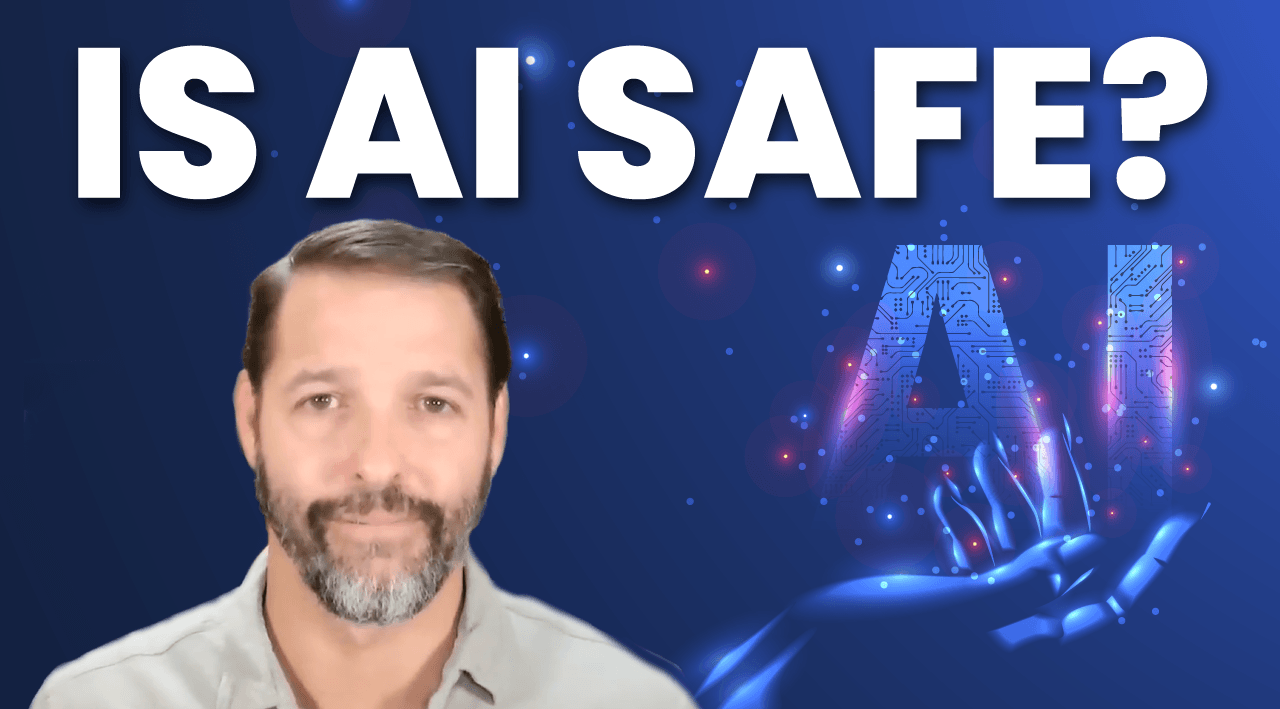The internet and social media have allowed humanity to progress economically, socially, and scientifically. Information and communication are far easier to access with the internet, which has led to an improvement in education in developing nations, the overthrow of dictatorial regimes during the Arab Spring, and allowed public health institutions to disseminate accurate, life-saving information during the COVID-19 pandemic. But it’s also true that more information doesn’t mean better understanding of information or more optimal communication. Misinformation and political polarization are running rampant in today’s America about contentious issues from the 2020 election to the efficacy of the COVID vaccine. It’s difficult to see how we can put Pandora back in the box, and begin having productive conversations and forging deep connections in the age of social media.
Monica Guzman joins EconTalk host Russ Roberts to discuss the importance of honesty, curiosity, and respect, the harm of having agendas in conversations, and how empathy can lead to depolarization and a better understanding of truth. Guzman is a journalist, senior fellow for public practice at Braver Angels, and author of I Never Thought of it That Way.
Guzman refers to social media as the “boss level of communication,” as productive conversations are extremely difficult on social media. Interactions tend to be short, reactionary, and out of the proper context. Add to this the lack of face-to-face communication and a constantly pessimistic news cycle, and social media platforms have become cesspools of political polarization. Guzman calls this the adolescence of communication. We have all the tools to have wonderful communication, but creating the tools is the easy part; engaging with them healthily at a societal level, is the true challenge. And according to Guzman, we’re currently failing:
…one of the tragedies to me is when I think of the extraordinary creative and human capital we have at our disposal…But then the filter of the way we talk to each other seems to take, like, the potential output of 100% and bring it down to 5%. Like, the good stuff coming out of this is just not that great…When you think about everything we have here, we ought to be able to collaborate. We ought to be able to understand each other and get so much more advanced–like, level-up our thinking about these tough problems, and understand why they’re tough.
This leads to the politics of misinterpretation. It’s becoming increasingly difficult to tell what people mean, and therefore easier to assume that someone we disagree with is wrong or evil. Arguments are becoming weaponized through misinterpretation”
I thought of a game of dodgeball: something comes and if it’s a weapon, I’m going to pick it up. Even if you didn’t intend it as a weapon or something I can use to boost up my side or what have you, that’s how I’m going to use it. I don’t care how you meant it. That’s how I’m going to use it. And, then I’m going to throw it at somebody.
This game of mutual misinterpretive dodgeball is a large problem to Guzman because it creates a lack of trust in each other, and consequently causes a fear of engagement. If you feel the other side isn’t truly listening to you and will use anything they can get to hurt you and destroy your values, why would you engage in conversation or debate in the first place? Guzman asserts that this lack of trust dangerously undermines democracy. If you and I can’t trust each other to participate in a conversation fairly, then how could we trust each other to run a nation, or not to steal elections?
I think one of the challenges of democracy in the United States right now is the lack of trust that the “other side” will play fairly. Therefore, when you’re in power, you have to do everything you can to get your side as far ahead so that when they come in, they won’t catch up. That could turn out very dark, indeed.
In her book, Guzman describes how we’ve begun to view each other as puzzles instead of mysteries:
Puzzles are problems that you solve. You already know the shape of the thing you’re making. You just have a couple of pieces you need to go find and then put in the right place, plug them in. But, mysteries, you don’t know the shape. Every piece you pick up changes the shape, draws up a bunch of new questions.
Viewing people as puzzles is problematic because it leads to assumptions about others’ perspectives, instead of genuinely seeking to find out what one believes. Instead of getting to the root of why people reach certain conclusions, conversation becomes a game of posturing and accusation. If you already know the answers, why would you bother showing your work?
Productive conversations require challenges, and it’s easy to avoid these challenges.. When we do this we fail democracy, and we fail each other. We create more faulty information about the other side, and therefore create a paradox of polarization. Guzman states that “one of the most pernicious things we believe is that people who oppose what we support must hate what we love.” When this is the assumption coming into a conversation, the ability to connect and change minds is already lost. Says Guzman:
You are already condescending–when you look at that sign, you are approaching it with condescension and you can’t be curious. And, that kind of shuts down everything before it starts.
I find it interesting: we care a lot about facts and truth, but that doesn’t seem to apply to the truth about people’s perspectives. That’s where it seems we don’t obsess about truth. But, I just think that’s really killing us because when people feel understood, that’s when you can build trust. And without sufficient trust, we can’t collectively search for truth.
Guzman and Roberts explore how agendas in conversations are problematic. In political conversations this goal is often to be correct, to affirm how your ideas are superior. With agendas, victory is valued over making a connection with another human being. Roberts adds to this, saying this is a pernicious way to dehumanize and objectify other people, as we’re not valuing what they have to say or truly listening to the personal experiences that have shaped the way they see the world, but instead we’re focused on the ways we can respond. He says,
I think a lot of our discussions online, especially around politics, are about the ideas. When we focus on the ideas that’s the center of gravity, instead of focusing on each other and our journey through this world and how we interpret world events and how they mix in with our values and experiences and who we become as people and our ideas about how we should all thrive together. That’s a fascinating thing.
Instead, I go behind the conversation about truth to the conversation about what’s meaningful. Who are they? What led them to these beliefs? What are the concerns and hopes and fears that animate, right? And then, what can I present about how I see those things and how can our perspectives sort of intermingle? And build trust, and build the kind of connection where maybe someday something could cross that makes them see something in a different light, or makes me see something in a different way.
Guzman argues that conversations need to embody more honesty, empathy, and respect. After all, conversations are how we solve problems, and without honestly portraying your perspective, respecting the other party’s perspective, and empathetic understanding how they came to a different conclusion, agreements simply cannot be reached, and it becomes impossible to challenge your own beliefs, humanize the other party, and solve problems with anyone you disagree with.
Nico Perrino and Juliette Sellgren discuss a similar theme on an episode of The Great Antidote Podcast. What tends to be forgotten is without conversation as a medium to come to agreements, violence becomes much more attractive to solve disputes, therefore if political violence is to be prevented, honest, empathetic, and respectful conversations are a necessity. Much of what Guzman and Roberts discuss in relation to conversation isn’t talking itself; much of empathy and respect comes from listening. Guzman also adds that listening can also be a very effective tool to de-radicalize people, as when people feel heard, they’re more receptive to other ideas.
…I talk about listening–it’s more than paying attention, being present, making sure you’re not just waiting for your turn to speak. Listening is showing people they matter. That’s what it is. That’s the criteria we each have: Have I been heard? Do I feel like I mattered in that? Do I feel demeaned, neglected, ignored, shoved aside in one way, undervalued?
Looking at bad ideas generously is more about looking at the people who hold them generously. Which, by the way, makes them more intellectually humble. There’s been research on this, too, that I’m so into right now: where, if someone just brings to mind a person in their life who tends to receive their ideas generously–not agree with them, but just listen, show them they matter–that person will become more intellectually humble. Meaning, they’ll be more likely to let some breathing room appear around their ideas so they could consider others.
This gets into curiosity, the object of Guzman’s book. To Guzman and Roberts, curiosity and empathy go hand in hand. This is quite easy to imagine; when someone is genuinely curious about how you feel or what you’re thinking about a certain issue, it shows that your thoughts, feelings, and perspectives matter to them. However, Guzman doesn’t limit the effect of curiosity squarely to interpersonal relationships, she expands this principle to democracy at large.
…that’s one of the things I think is the most important thing we can do for our democracy, is get curious about each other with each other.
A feature of conversations that Guzman values is clarification over reaction, so much that it’s a staple in the events of Braver Angels.
I work at Braver Angels, which is an amazing large nonprofit working on depolarizing America. And, in our own culture, internally, somebody proposes something and then we leave the space open for questions of clarification. So, before people give comments, that’s what we do. ‘Wait, what did you mean?’ And so, we each kind of query our own way that we heard what was said, and then if there’s something where we’re like, ‘What???’ that’s when we ask. And, the way that clears things up–right?–and it models, ‘We’re trying to get you right before we use what you say.’ Before we dissect and judge it, let’s make sure we know what you mean.
As Guzman states, clarification isn’t limited to what someone believes, but it also extends to why someone believes what they do. This is crucial because we tend to forget that people who believe in reprehensible things don’t have the same experiences we do. Neo-Nazis, neo-confederates, white supremacists, etc. are often victims of propaganda and general societal ills. The socio-political environment is at fault for creating racists, homophobes, and anti-Semites. It’s comforting to think that if one was raised in the antebellum south that we would be a part of the underground railroad, would’ve fought for the union, and battled against slavery. This doesn’t mean slavery, racism, and secession are moral or defensible, but it does mean that we should seek to understand why people laid down their lives for evil. E
After all, as Guzman states, “The end goal is persuasion. The end goal absolutely is persuasion. We need a society where we can mix our ideas generously and the best ideas actually win.” Humanization and empathy clearly have an end goal, that being education, and the emergence of knowledge. Roberts likens this to his experience as President of Shalem College, as when great works of literature are discussed in classes, the professor isn’t teaching the students what meaning is to be derived from the text, it’s discovered in conversation and reflection in discussion. We need to trust each other a little more to find the truth within conversations.
Most of us, again, hardwired probably, we like our own beliefs a lot more than the truth. And, we don’t trust that conversation to create that understanding and wisdom because we’re afraid we might find out we’re wrong, and that hurts. And if you get to a point where it doesn’t hurt, it delights.
I had a few questions and points to add while listening to this episode. We hope you’ll take the time to share your thoughts as well.
- Guzman states that we don’t apply truth to people’s perspectives as much as we should. I somewhat disagree. The reason behind this is because people can lie or not understand their own positions. Anyone who’s been in their fair share of debates can attest to the latter. People are often very unwilling to bite the bullet on uncomfortable positions that their ideas justify. For example, conservatives are quick to condemn the riots in the summer of 2020, but minimize the significance of January 6th. Regarding lying, this is called dog whistling, coded language which is designed to sneak oftentimes morally reprehensible positions in through the guise of uncontroversial ones. A common example of this is alt-righters using the term “freedom of association” to justify a white ethno-state. That being said, can focusing on finding good faith reasons for a person’s perspective go too far to the point where defense is being run for genuinely horrible positions or people? What’s the line between humanization and empathy, and implicit endorsement?
1- What does a resistance to debate mean for the future of free speech and democracy? Could a social enforcement of certain topics being off limits for discussion lead to spaces for anti-democratic or morally reprehensible ideas to grow or would it stifle them?
2- Towards the end of the podcast Guzman states that “you don’t have to talk to a Nazi tomorrow,” to highlight the importance of small steps in challenging your beliefs. However, a problem occurs when the Nazi’s don’t want to have a discussion. How can people who don’t want to engage with those outside of their ingroups be engaged in conversation, and eventually persuaded to change their beliefs?
3- Guzman and Roberts discussed methods of curious and empathic conversation at length. So, how can a conversation that goes off the rails be reset to a healthy and productive engagement?















